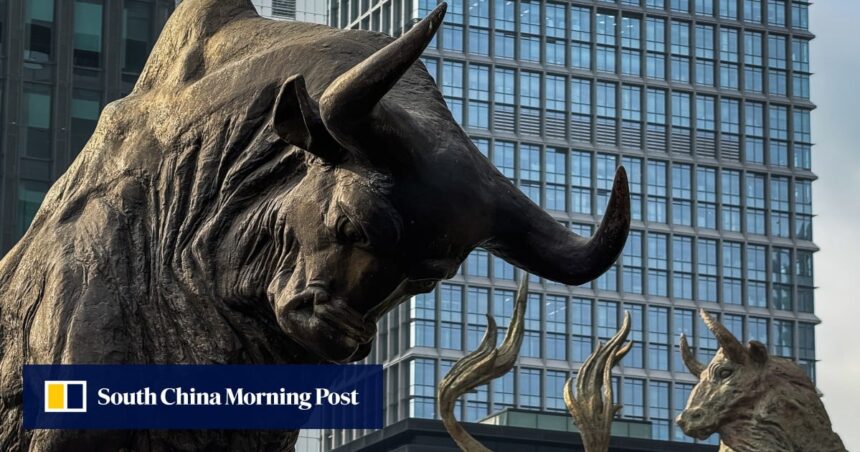Recent developments in the Chinese stock market have prompted concerns about regulators’ capacity to manage its rapid rise. As Beijing aims to establish the nation’s US$12 trillion equity market as a reliable source of household income, the shift comes at a critical time when the property market is struggling, diminishing the wealth of investors.
With Chinese households holding a staggering 160 trillion yuan (approximately US$22.5 trillion) in bank savings, the stock market has gained renewed attention from President Xi Jinping, who is focused on bolstering China’s financial power. The persistent downturn in the property sector has intensified the spotlight on stocks as a viable alternative for investment, particularly as consumer spending and overall economic growth face challenges.
The volatility characteristic of the Chinese stock market over the last two decades raises questions about how the government might steer a more stable yet sustainable bull market. Observers note that China could take cues from the successful models seen in markets like India, Japan, and the US. The potential for steady gains in the stock market presents an opportunity to redirect household wealth away from real estate, which constitutes around 60 percent of Chinese families’ assets, thereby potentially reinvigorating subdued consumption levels.
Regulators may be reassured by recent market dynamics, as a pullback last week has tempered the relentless upward trajectory seen in recent weeks. This moderation might help in reducing the likelihood of retail investors engaging in risky practices that could lead to market volatility, such as pump-and-dump schemes. On September 4, China’s key stock benchmarks experienced their most significant decline during the current rally, falling more than 2 percent, indicating the ongoing challenges faced by market participants.
Analysts, including Hao Yifan from Hwabao Securities, underscore the ongoing transition in the market sentiment. While they anticipate increased volatility in the near future, there is optimism that the overall uptrend is far from over. “We are in transition from the one-way gain to a slow bull [market],” Yifan stated, highlighting the complex landscape that regulators and investors must navigate as they look to uphold financial stability and foster economic growth.







